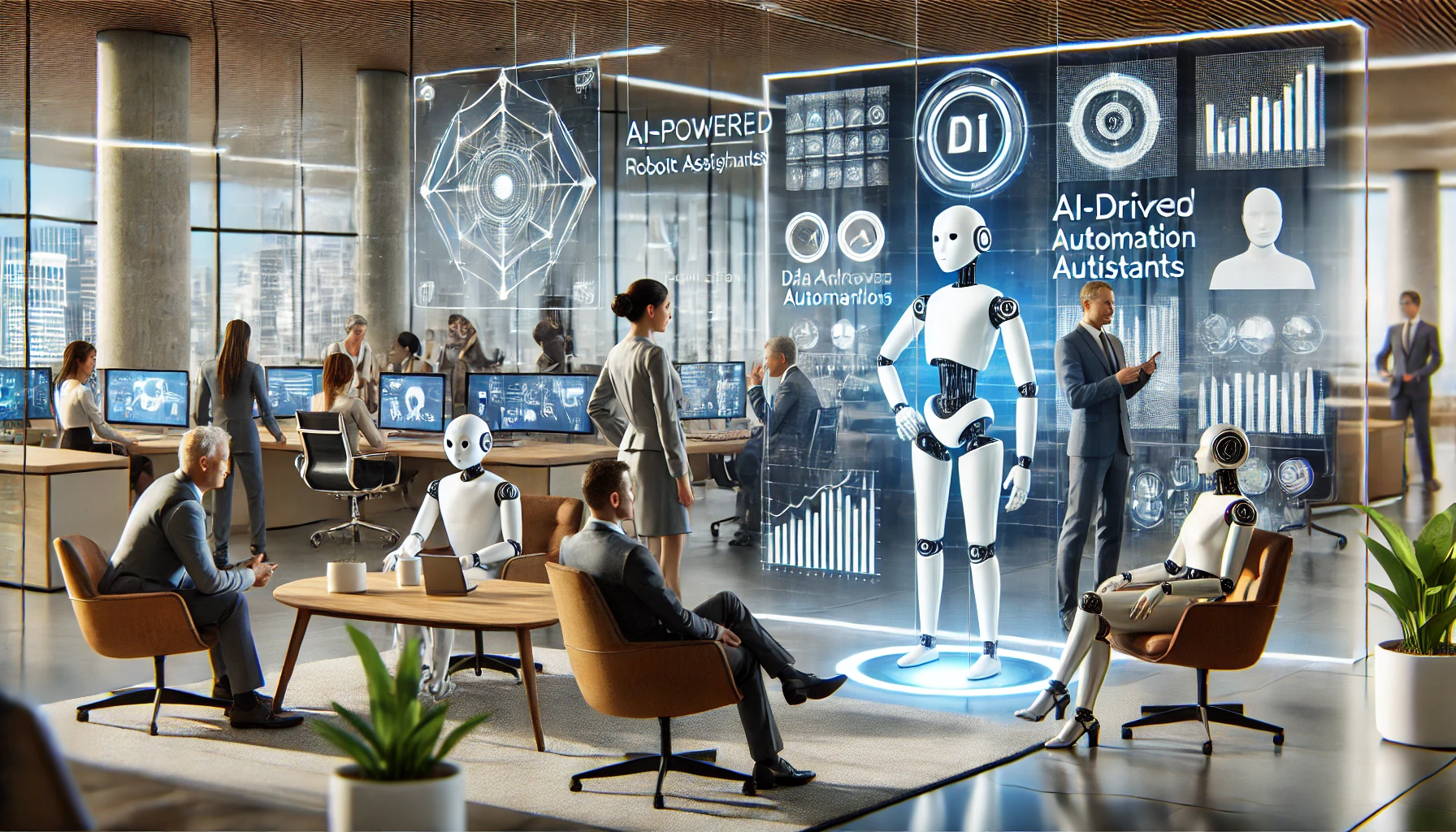
AI's Rapid Rise: How Specialists Are Shaping the Future of Business Innovation and Automation
Table of Contents
- Introduction
- The Role of AI Specialists in Business Innovation
- How AI Specialists Drive Automation
- Current Industry Standards and Best Practices
- Practical Steps for Businesses to Leverage AI Specialists
- Conclusion
Introduction
Artificial Intelligence (AI) is no longer a futuristic concept; it has become a critical driver of business innovation and operational efficiency. Companies across industries are leveraging AI to automate repetitive tasks, enhance decision-making, and unlock new revenue streams. However, the complexity of AI development requires specialists with deep technical knowledge and business acumen.
This article explores how AI specialists are shaping the future of business innovation and automation. We will examine the key roles they play, the industry standards they follow, and the practical steps businesses can take to harness their expertise for maximum impact.
The Role of AI Specialists in Business Innovation
AI specialists are pivotal in helping organizations translate theoretical AI concepts into real-world applications. Their responsibilities extend beyond coding algorithms; they must align AI initiatives with business objectives.
Identifying Business Opportunities
AI specialists analyze organizational pain points and inefficiencies to identify areas where AI can add value. By conducting feasibility studies and cost-benefit analyses, they prioritize projects with the highest potential ROI.
Designing AI-Powered Solutions
From chatbots to predictive analytics tools, AI specialists design customized AI models tailored to specific business needs. This includes developing machine learning models, training algorithms, and testing performance to ensure precision and accuracy.
Bridging the Gap Between AI and Business Needs
Effective communication between AI teams and business stakeholders is essential. AI specialists translate complex technical concepts into actionable business strategies, ensuring that projects remain aligned with company goals.
How AI Specialists Drive Automation
Automation is one of the most transformative aspects of AI’s impact on business. AI specialists enable companies to automate repetitive and manual tasks, freeing employees to focus on strategic work.
Process Automation
AI specialists build Robotic Process Automation (RPA) bots to handle repetitive tasks such as data entry, invoice processing, and customer support. These bots operate 24/7, increasing efficiency and reducing human error.
Intelligent Automation
Unlike basic RPA, intelligent automation integrates machine learning and natural language processing (NLP) to handle more complex tasks. AI specialists design models that enable systems to make context-aware decisions and process unstructured data, such as emails and chat messages.
Hyperautomation Trends
Hyperautomation involves using multiple AI tools and platforms to automate as many processes as possible. AI specialists orchestrate these tools to create seamless, end-to-end automated workflows, driving unprecedented efficiency and agility.
Current Industry Standards and Best Practices
AI specialists follow industry standards and best practices to ensure that AI systems are ethical, secure, and scalable. Here are some key considerations shaping the field.
Ethical AI Implementation
AI specialists are tasked with ensuring that AI systems operate fairly and without bias. This requires transparency in AI decision-making, as well as auditing models to identify and eliminate biases that could impact users or customers.
Data Privacy and Security
Since AI systems rely on vast datasets, maintaining data privacy and security is a top priority. AI specialists follow guidelines from organizations like ISO and GDPR to ensure that personal data is handled with care and processed securely.
Scalability and Sustainability
AI solutions must be built to scale as business needs evolve. AI specialists develop models that can handle increasing data volumes and support cross-functional use cases. Sustainability is also a key focus, with specialists designing AI solutions that minimize energy consumption and resource usage.
Practical Steps for Businesses to Leverage AI Specialists
Businesses looking to capitalize on AI-driven innovation should consider the following steps:
- Conduct a Needs Assessment: Identify the processes and workflows that could benefit from AI-driven automation.
- Hire or Partner with AI Specialists: Employ in-house specialists or partner with third-party AI firms to access expert guidance.
- Invest in AI Education and Training: Equip internal teams with AI knowledge to foster a culture of innovation.
- Develop a Clear AI Strategy: Create a roadmap that outlines specific AI use cases, success metrics, and ROI expectations.
- Start with Pilot Projects: Test AI solutions on a small scale before rolling them out across the organization.
Conclusion
The rapid rise of AI has made it a cornerstone of modern business innovation and automation. At the heart of this transformation are AI specialists who bridge the gap between complex technical processes and real-world business needs. By adhering to industry best practices, leveraging intelligent automation, and following ethical guidelines, these specialists help companies achieve sustainable growth and operational excellence.
Businesses looking to stay ahead of the curve must recognize the vital role of AI specialists. By leveraging their expertise, companies can drive innovation, streamline operations, and unlock the full potential of AI-driven transformation.